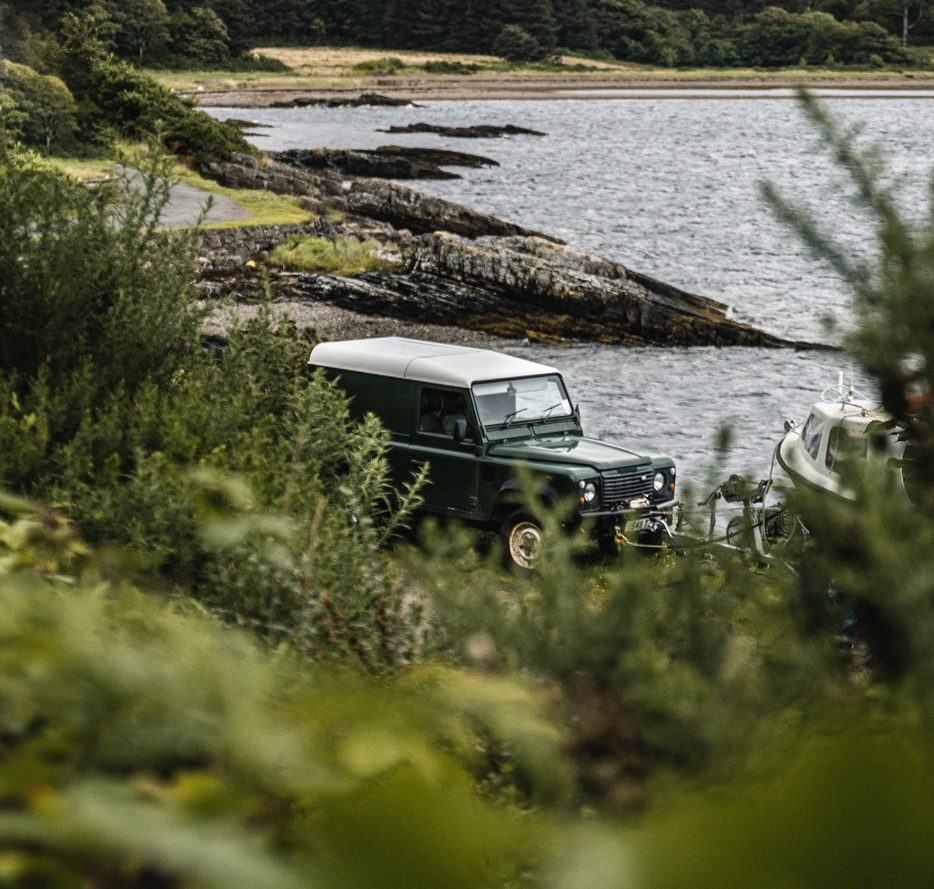
Fun Rover
July 28, 2021
Search
Popular Articles
8 Almost Useless Land Rover Mods
11th June 2014
Updated: What Makes a Defender Iconic?
29th November 2011
Are you planning an offroad trip? Probably you want to enjoy some time in nature, off the beaten track, to discover new areas and landscapes. Before heading out on a trail, there are some things you should check if you want to have an easy and safe trip.

Also, ensure you're well equipped for an off-road trip and know the mistakes to avoid. Here are things to do to ensure you and the vehicle can handle the drive.
Get an Appropriate Set of Tires
Probably you'll need to invest in a new set of tires with a better grip on sand, mud, or ice. Even if you don't want to invest in a completely new set of tires, it may be worth considering appropriate tire covers for extreme weather conditions.
First, understand the weather conditions you might encounter and the terrain. You might want to talk to an expert on the most appropriate tires to get. Most importantly, have spare tires and other gear in case of a breakdown.
Protect Your Vehicle's Paint
You might not be able to fully protect your vehicle from flying debris, scratches and dents when off-road, but a car wrap can do the trick. The car wrap is essential when driving through vegetation and sand.
Pinstripes are inevitable while driving off-road, and it's better to protect your car from this kind of damage. You can also use the car wrap to customize your vehicle and make it stand out on a trail.
Make Sure You Have the Right Equipment for Your Trip
You'll probably need additional equipment like tow ropes, an extra fuel tank, tire pressure gauge, a first aid kit and a survival kit. Keep in mind that off-road driving is dangerous on its own, so accidents can happen even if you're well prepared. Understand the terrain well and have a GPS or a tracker that will help you find your way back to civilization.
Get a Lift Kit
A few inches off the ground will minimize obstructions enabling you to cover more ground with less effort. If you're not sure of the best kit for your vehicle type, talk to an expert. Also, make sure it's well fitted without compromising vehicle balance.
You might also want to replace the vehicle's suspension with heavy-duty springs, bushings and other critical hardware. Go for corrosion-free bolts and polyurethane bushings. A skid plate might also be a helpful consideration. It will protect your vehicle's drivetrain, engine, and radiator from contact with sharp objects such as boulders.
Have a Bull Bar
Sometimes, you'll go through bushes and other obstacles, but you still have to protect your vehicle's front from damage. A bull bar is a perfect application. It will also help you push through objects.
Try finding the best fit for your vehicle, so it doesn't affect steering or braking systems and or put you at risk because of its size. Another consideration is a winch which can pull you and other offroad drivers out of a bad situation.
Contact an Off-Road Training School
If you're not familiar with off-road conditions, contact the nearest off-road school and get some training before heading out on your trip. This will help you learn new driving techniques and handle the obstacles that arise during off-road driving. The instructors can also expose you to unique gear and techniques that you might not have thought about.
Learn how to use an air compressor, check for leaks, change tires and other essential items related to vehicle maintenance. The skills will help avoid car breakdowns and other inconveniences. Most importantly, it will keep you safe.
Give Your Car a Check-Up Before and After the Trip
Before starting the trip:
- Check that your car is in good condition for an offroad trip.
- Make sure it's not too old or damaged.
- Have all parts adequately attached and functioning well
- Check the brakes, air pressure and tire pressure to be sure they're in optimal condition.
Get a mechanic to check the engine oil, transmission fluid and cooling system hoses to avoid overheating or freezing off-road. You might also want to get a vehicle diagnostic for the engine.
If your off-road trip is long, consider getting an oil change and check all tire pressure every 100 miles or so.
Before you set out on a trail, make sure your hitch is firmly attached. After your trip, check the vehicle for any damage and make sure it's safe to drive before taking it on a long journey again.
Repair Your Car Quickly If It Breaks Down
Even if you're well prepared for an offroad adventure, things can go wrong. The most important thing to remember when your car breaks down is to keep calm and act fast. Assess the situation and try not to panic.
The most common problems are punctures, overheating or freezing as well as battery issues. If you get stuck in deep snow, mud or sand, don't try to accelerate or brake hard – it won't help you. If your car gets stuck, attempt to go forward, sideways or slowly reverse until you get free.
Assume the Worst Will Happen
The worst can happen even if you're extra careful and follow all safety precautions. It's always good to visualize the worst-case scenario, enabling you to prepare adequately. Make sure someone knows where you are going and when you plan to return. Have a backup car if something happens to your vehicle. If the worst happens, try not to panic and stay calm until help arrives.
To stay safe:
- Keep on familiar terrain or ones used by other off-road drivers.
- Have company on off-road driving excursions to learn from and keep you company. It's more fun and safer when with a group of friends.
- Don't take risks, and don't drive alone.
Additionally, never go out on the road without checking local weather forecasts. Know what to expect – if there's a chance for snows, rains or high winds, you'd better stay home. If you're planning to drive in a desert country, make sure you have enough water and food for the whole trip.
About Us
FunRover is a place for Land Rover enthusiasts to gather as a community and discuss the best 4x4 vehicles ever produced. We're building a library of high quality resources & articles to help owners along in their Land Rover ownership.
Popular Posts
8 Almost Useless Land Rover Mods
11th June 2014
Updated: What Makes a Defender Iconic?
29th November 2011
How to Plastidip your Land Rover Defender
19th August 2014





